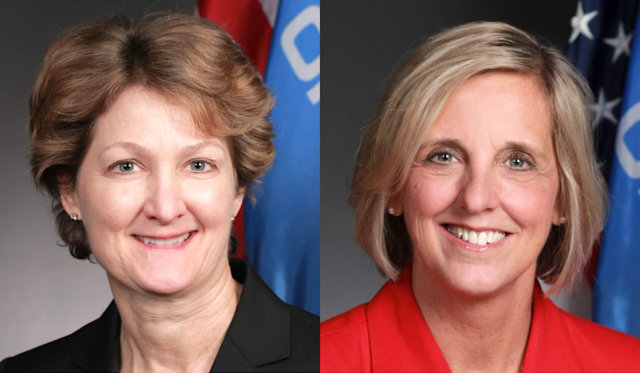
On the same March day that the Oklahoma House of Representatives voted down a bill mandating consent and healthy relationship education, the Oklahoma State Senate advanced its own version.
While HB 1007 failed amid syntax disputes, procedural rancor and subtle partisan tension, SB 926 passed thanks to concisely drafted language that Senate Minority Leader Kay Floyd (D-OKC) said she received during a conversation with a constituent.
“A constituent came to me and said his kids attend a school and the superintendent a couple years ago decided to do sex education,” Floyd said. “His kids — he has a boy and a girl — decided they wanted to practice abstinence and wait until they got married. The constituent said, ‘We hear so much about consent, and we’ve heard so much about it the last couple of years, but this curriculum doesn’t cover that.'”
So Floyd filed SB 926, her version of an attempt to require discussion about “consent” within sexual education courses. Carried by Rep. Carol Bush (R-Tulsa) in the House, the bill advanced through the House Common Education Committee this morning by a 17-0 vote.
“I’m a proponent of comprehensive sex ed that includes all the different options,” Bush said Monday in her office. “Any time that we can arm our children with information to help them make better decisions in an age-appropriate way is something that, unfortunately, has to happen.”
Floyd said when she began the conversation with her constituent about abstinence, she did not anticipate him asking her to file a bill requiring education about consent.
“He won me over with the argument,” Floyd said. “I thought, ‘How interesting that I’m having this conversation because, when we first started, I thought it was going a whole different direction.'”
Bush: ‘This is very concise’
Floyd’s bill modifies existing requirements about the teaching of abstinence in sex education so that any curriculum “shall include information about consent.” The bill references the existing legal definition of “consent” in Title 21, Section 113 of state statute:
The term ‘consent’ means the affirmative, unambiguous and voluntary agreement to engage in a specific sexual activity during a sexual encounter which can be revoked at any time.
Bush called SB 926 “a very simple bill.”
“The bill that we (previously) did hear on the House floor was a little bit messy,” Bush said. “This is very concise.”
When HB 1007 failed on March 14, the timing coincided with revelations that a teenage participant in the House’s “page” program had alleged sexual assault by another participant.
Bush said that “unfortunate situation” underscored how teens face scenarios where the topic of consent is important “all the time.” A member of the House task force examining the page program, Bush said adjustments have been made to make the mentorship program better and stronger, and she praised the work of Rep. Dell Kerbs (R-Shawnee) who oversees it.
The House’s program resumed this week.
‘This is a huge cultural issue’
Floyd said educating young people about the legal definition of “consent” is important because “it’s not just a word.” She said students need to think through many scenarios, such as instances where people are under the influence.
Bush, who has worked in public health and with Tulsa’s Domestic Violence Intervention Services, said she recognized the importance of those conversations in her own home.
“As I’ve said before, I’m the proud owner of two girls who, thank goodness, are now in their mid-20s,” Bush said with a laugh. “Fortunately, we had open dialogue in our home about the reality.”
But Bush said many young people do not receive the same opportunities for discussion in their homes, something that concerns her considering her daughters’ experiences in high school.
“Some of the things they were telling me were happening in their schools were just incredible,” Bush said. “I had one at a private school and one at a public school. It doesn’t matter. These things that our kids are faced with day-to-day, we cannot just assume, well, we’re going to shove it under the rug because it’s not happening.”
Stacey Wright, the founder of Yes All Daughters who has advocated for consent education, called SB 926 “a great starting point for young people in Oklahoma.”
“This is a huge cultural issue,” she said. “One of the first places we can chip away is getting young people to understand what the statutory law is.”
Wright said she believes people are beginning to understand the importance of teaching students about consent and healthy relationships.
“This issue shouldn’t be political. This is about safety for young people,” Wright said. “It really frustrates me when it comes down to partisan politics. (…) It should be about what’s best for young people in our state.”
Bush agreed.
“It’s their body. It’s their self-worth that we are trying to help them figure out how to navigate going forward,” Bush said.





















